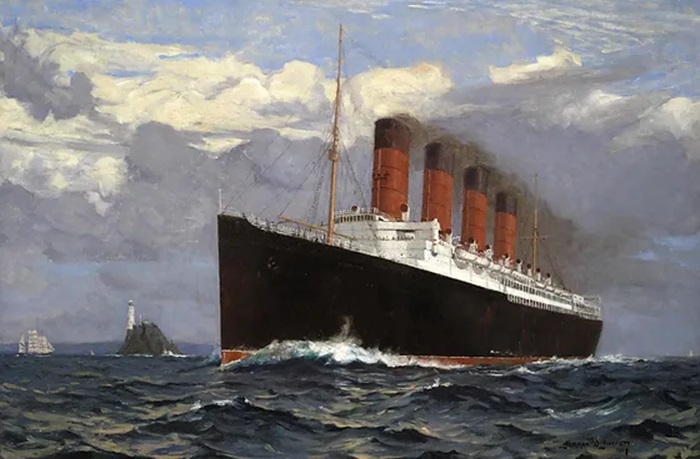May 15th stands as a date of historical significance in the annals of British history, marked by a plethora of events that have shaped the nation’s trajectory. From political upheavals to cultural milestones, this day has witnessed a diverse array of occurrences that have left lasting imprints on the United Kingdom and its people. Through an exploration of key events, we can gain a deeper understanding of the importance of May 15th in British history.
The Launch of the RMS Lusitania (1906)
On May 15th, 1906, the RMS Lusitania, one of the most luxurious and technologically advanced ocean liners of its time, was launched in Glasgow, Scotland. Built by the renowned shipbuilding firm John Brown & Company, the Lusitania was intended to be a symbol of British maritime prowess and a testament to the country’s industrial might. However, the ship’s fate would take a tragic turn eight years later when it was sunk by a German submarine during World War I, resulting in the loss of over 1,100 lives and contributing to the eventual entry of the United States into the conflict.
The Restoration of the Monarchy (1660)
May 15th, 1660, marked a pivotal moment in British history with the restoration of the monarchy following years of republican rule under Oliver Cromwell and his successors. On this day, King Charles II, the exiled son of the executed King Charles I, was welcomed back to England with great fanfare, heralding the end of the Interregnum period and the return of royal authority. The Restoration brought stability to the nation after years of political upheaval and set the stage for a period of cultural and artistic flourishing known as the Restoration era.
The Maiden Flight of the de Havilland Comet (1952)
May 15th, 1952, witnessed a milestone in aviation history with the maiden flight of the de Havilland Comet, the world’s first commercial jet airliner. Designed and built by the British aircraft manufacturer de Havilland, the Comet revolutionized air travel with its jet propulsion technology and sleek, aerodynamic design. Its introduction marked the beginning of the jet age, paving the way for faster, more efficient air transportation on a global scale. Despite early setbacks, including tragic accidents attributed to design flaws, the Comet’s legacy endures as a pioneering achievement in the history of aviation.
The Siege of Eger (1552)
On May 15th, 1552, the Siege of Eger came to an end with the victory of the defenders, led by Captain István Dobó, over the invading Ottoman forces. Located in present-day Hungary, the fortress of Eger was a crucial strategic stronghold on the frontiers of the Habsburg Empire, serving as a bulwark against Ottoman expansion into Central Europe. The successful defense of Eger against overwhelming odds became a symbol of Hungarian resilience and defiance in the face of foreign aggression, inspiring subsequent generations to uphold the nation’s independence and identity.
The Opening of the Royal Albert Hall (1871)
May 15th, 1871, marked the grand opening of the Royal Albert Hall in London, one of the most iconic and prestigious concert halls in the world. Named in honor of Prince Albert, husband of Queen Victoria, the hall was designed to promote the arts and sciences and provide a venue for concerts, exhibitions, and other cultural events. The inaugural concert featured a performance of Handel’s “Israel in Egypt” conducted by Sir William Sterndale Bennett, setting the stage for the countless performances and events that would follow in the centuries to come. The Royal Albert Hall stands as a testament to British creativity and innovation in the field of architecture and continues to be a beloved landmark cherished by audiences around the globe.
The Restoration of the Monarchy (1660)
May 15th, 1660, marked a pivotal moment in British history with the restoration of the monarchy following the tumultuous period of the English Civil War and the Commonwealth under Oliver Cromwell. With the return of King Charles II to the throne, known as the Restoration, the monarchy was reinstated, bringing an end to the republican experiment that had characterized the Interregnum. The Restoration ushered in a new era of stability and prosperity for England, marked by the flourishing of the arts, literature, and culture known as the Restoration period. Despite the challenges and conflicts that would continue to shape British society, the Restoration laid the foundation for the modern constitutional monarchy that endures to this day.
The Formation of the Women’s Institute (1915)
May 15th, 1915, saw the establishment of the Women’s Institute (WI) in the United Kingdom, an organization dedicated to promoting education, empowerment, and community involvement among women in rural areas. Founded in Wales by Canadian-born activist Madge Watt and suffragist Margaret Rhondda, the WI quickly grew into a nationwide movement with branches across the country. The WI played a crucial role during both World Wars, providing support for women on the home front and contributing to war efforts through initiatives such as preserving food and raising funds for hospitals. Today, the Women’s Institute continues to advocate for women’s rights and social justice issues, embodying the spirit of female solidarity and activism in British society.
Conclusion
May 15th holds a special place in British history, serving as a day of commemoration and reflection on the myriad events that have unfolded on its stage. From triumphs of engineering and exploration to moments of political upheaval and military valor, the significance of this date extends far beyond its individual occurrences. By examining the events that have transpired on May 15th, we gain valuable insights into the rich tapestry of British identity and the enduring legacy of the United Kingdom on the world stage.

